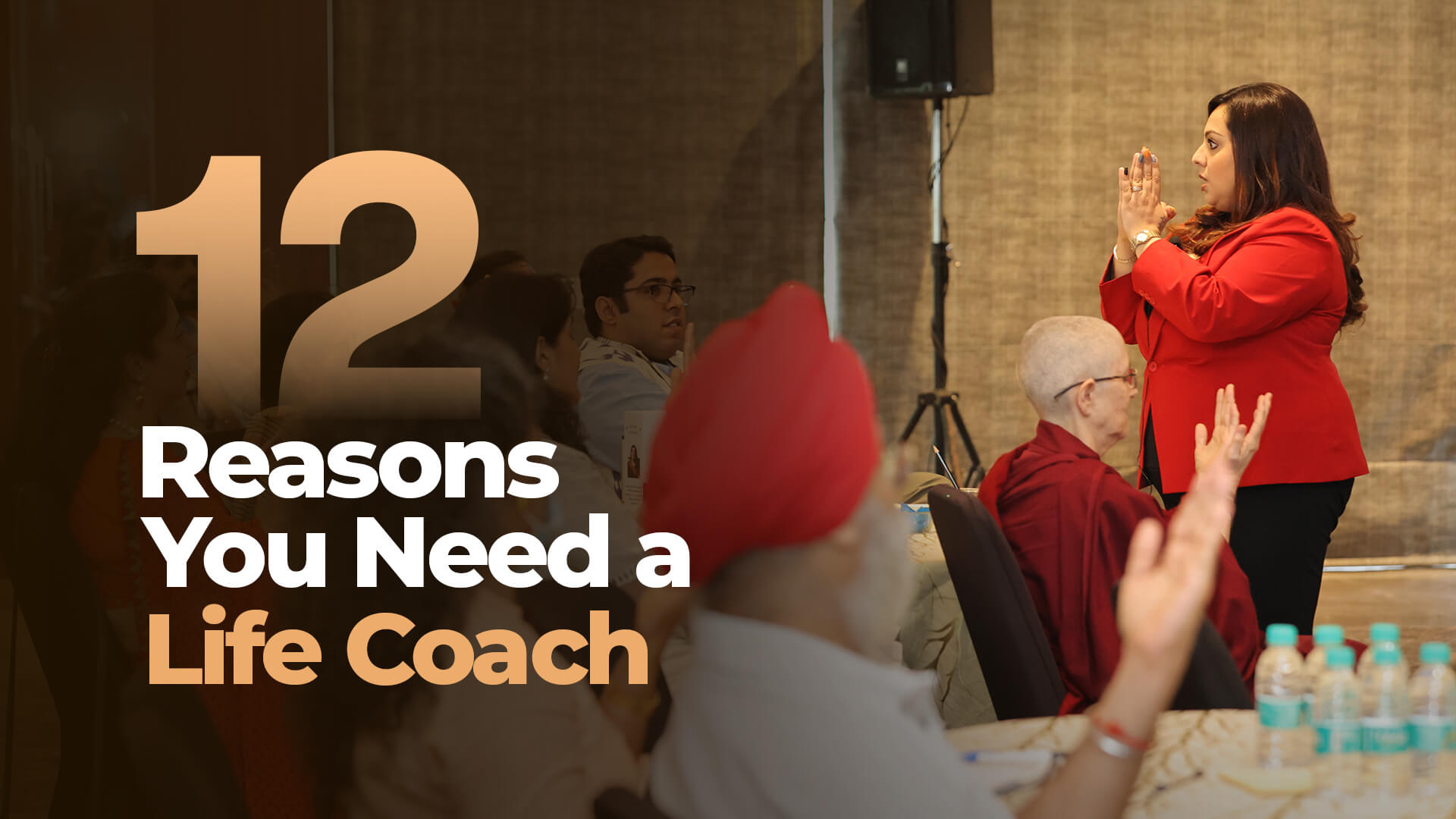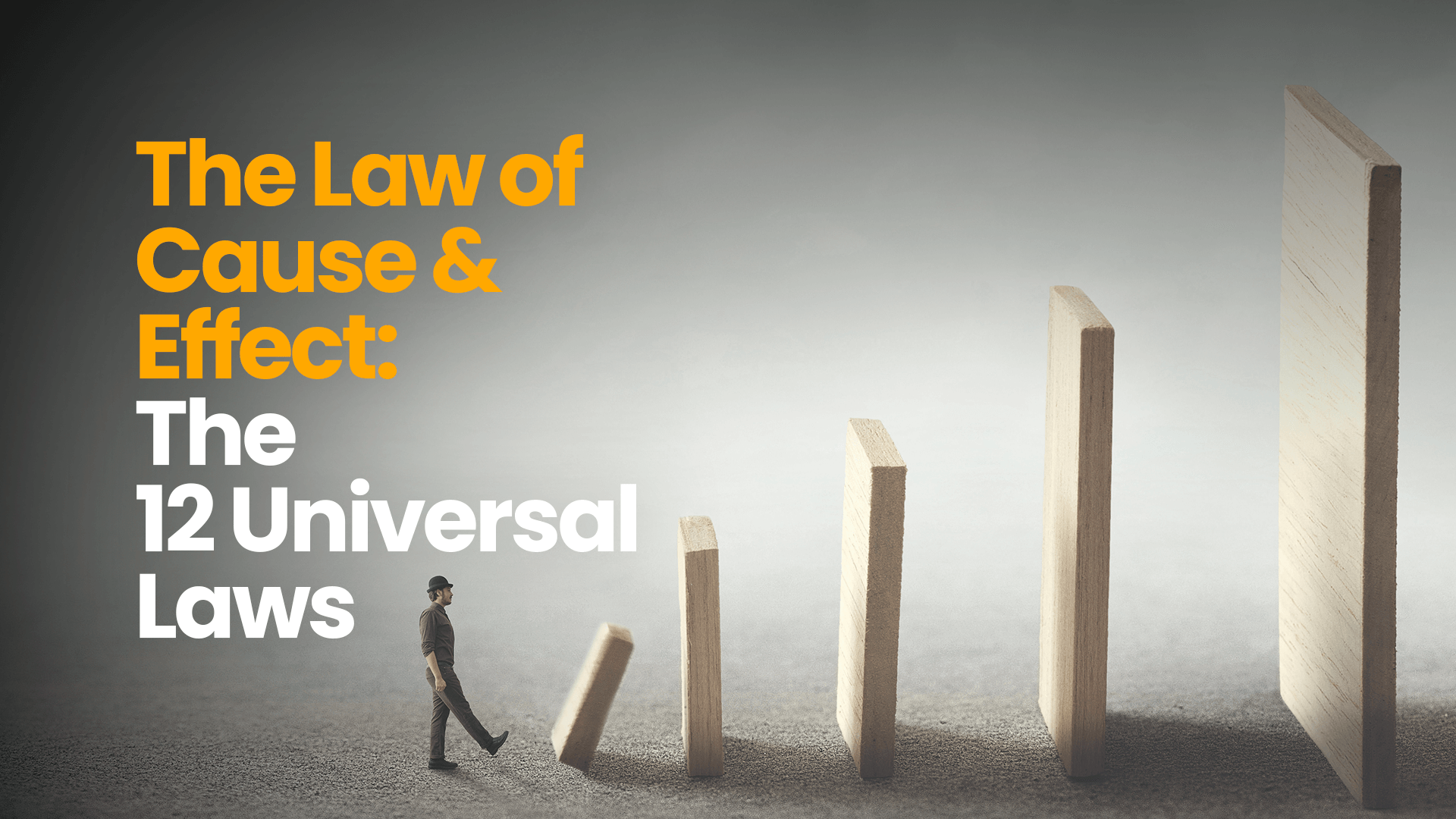In a universe governed by fundamental principles, have you ever wondered why certain patterns seem to repeat in your life? Or why, despite your best efforts, some relationships feel stagnant while others flourish? The Law of Compensation stands as one of the most powerful yet often overlooked forces shaping our experiences.
Often referred to as the Law of Cause and Effect or spiritual reciprocity, this principle operates consistently in our lives, whether we’re aware of it or not.
What if I told you that for everything you give, you receive something in return? Imagine how this perfect balance influences not only your opportunities but also your relationships, health, and even your financial well-being.
It’s not merely a philosophical concept; it’s a practical framework that invites you to understand the flow of energy, actions, and intentions that govern our existence.
Have you ever experienced a time when an unexpected opportunity seemed to materialize out of nowhere—only to realize later that it was the result of your previous generosity?
When you grasp the essence of this universal law, you unlock the ability to create more positive outcomes simply through intentional giving and receiving.
In this comprehensive exploration, we will dive deep into the origins, mechanisms, and practical applications of the Law of Compensation across different aspects of life. Are you ready to untangle the secrets behind wealth, relationships, health, and spiritual growth?
Join us as we undertake this journey of discovery, understanding how you can consciously engage with one of the most significant laws governing our lives.
Historical Origins and Cross-Cultural Perspectives
The concept of compensation as a universal law appears across numerous spiritual traditions and philosophical systems, though it’s expressed in different terminology:
Ancient Eastern Philosophies
In Buddhism and Hinduism, this principle manifests as karma—the understanding that all actions generate corresponding effects that return to the doer. The Sanskrit term “karma” literally translates to “action” or “deed,” emphasizing the causal relationship between what we do and what we experience.
According to the Bhagavad Gita, an ancient Hindu text dating back to 400 BCE: “Whatever action is performed by a great man, common men follow in his footsteps, and whatever standards he sets by exemplary acts, all the world pursues.” This illustrates how the quality of your giving determines the quality of what returns to you.
Western Religious Traditions
In Christianity, this concept appears in Galatians 6:7: “Do not be deceived: God cannot be mocked. A man reaps what he sows.” Similarly, in Luke 6:38, we find: “Give, and it will be given to you. A good measure, pressed down, shaken together and running over, will be poured into your lap.”
The Jewish tradition contains similar wisdom in Proverbs 11:25: “A generous person will prosper; whoever refreshes others will be refreshed.”
Scientific Parallels
Modern physics offers striking parallels through Newton’s Third Law of Motion: “For every action, there is an equal and opposite reaction.” Though Newton was describing physical forces, this principle mirrors the spiritual and energetic exchanges described by the Law of Compensation.
Quantum physics further supports this concept through the observer effect and entanglement theory, suggesting that energy and intention influence outcomes and that separate entities remain intrinsically connected.
The Core Mechanisms of Compensation
To harness the Law of Compensation effectively, you must understand its fundamental mechanisms:
Energy Exchange
At its essence, compensation operates through energy exchange. Every thought, word, action, and intention carries energetic qualities that flow outward from you and eventually return in corresponding form.
Dr. David Hawkins, researcher and author of “Power vs. Force,” developed a calibrated scale measuring the energetic frequencies of human emotions and states of consciousness. His research shows that higher vibrational states—love, joy, peace—generate more powerful and beneficial returns than lower states like fear, anger, or greed.
Reciprocity Cycles
The Law of Compensation doesn’t always operate instantaneously or obviously. Its effects often unfold through:
- Immediate returns (direct and recognizable)
- Delayed returns (manifesting over time)
- Transformed returns (appearing in different forms than the original giving)
- Collective returns (affecting communities or systems you’re part of)
Research by sociologist Dr. James Fowler and political scientist Dr. Nicholas Christakis demonstrates how positive actions create “contagion effects” extending to three degrees of separation—affecting not just the direct recipient of your kindness but potentially hundreds of others through network effects.
Value Multiplication
Perhaps most fascinating is how the Law of Compensation often returns value in multiples of what was given. When you provide genuine value without expectation, the returns frequently exceed your initial investment—whether that investment was time, energy, money, or attention.
A 2018 study published in the Journal of Experimental Psychology found that acts of generosity trigger significantly greater happiness than self-focused spending, creating a “positive feedback loop” of well-being that compounds over time.
The Law of Compensation in Material Wealth
The relationship between giving and receiving becomes particularly evident in financial matters:
Financial Circulation
Money, like energy, must flow to maintain its value and power. When you hoard resources out of fear or scarcity thinking, you restrict the natural circulation that brings increased prosperity.
Economic research consistently shows that money velocity—how quickly currency circulates through an economy—correlates strongly with prosperity levels. The same principle applies to personal finances.
Investment Principles
Successful investors understand that capital must be released (invested) before returns can be generated:
- Stock market investments require upfront capital commitment
- Business growth demands reinvestment of profits
- Real estate appreciation typically follows property improvement investments
Compensation in Business
Businesses that prioritize delivering exceptional value before demanding payment typically outperform those focused primarily on profit extraction:
- Companies with strong customer service orientation show 4-8% higher revenue than competitors (Bain & Company research)
- Businesses practicing “servant leadership” experience lower turnover and higher employee engagement (Jim Collins, “Good to Great”)
- Organizations that implement genuine corporate social responsibility programs outperform market averages by 4.8% annually (Harvard Business Review, 2019)
Wealth Consciousness Practices
To align with the Law of Compensation financially:
- Develop a mindset of abundance rather than scarcity
- Practice calculated giving—strategic generosity that supports causes you value
- Focus on creating value before expecting returns
- Recognize and appreciate all forms of wealth, not just monetary
Relational Dimensions of the Law of Compensation
Your relationships provide some of the clearest demonstrations of compensation principles:
Trust and Vulnerability
Research by Dr. Brené Brown demonstrates that vulnerability—making yourself emotionally available—creates deeper connection and intimacy. By giving others the gift of your authentic self, you receive authentic connection in return.
Attention Quality
The quality of attention you give others directly influences the quality of connection you receive. A 2020 study from the University of California found that people who practiced “active listening” (giving full, present attention) were rated as significantly more likable and trustworthy than those who multitasked during conversations.
Emotional Investment
Emotional support operates as a powerful form of giving that generates returns in kind:
- Offering empathy creates psychological safety for others
- Celebrating others’ successes strengthens bonds
- Providing comfort during difficult times builds lasting loyalty
According to relationship researcher Dr. John Gottman, successful long-term relationships maintain at least a 5:1 ratio of positive to negative interactions—a specific mathematical expression of the Law of Compensation in relationships.
Health and Well-Being Aspects
Your physical and mental well-being also respond to compensation principles:
Physical Health Exchange
How you treat your body creates direct compensation effects:
- Regular exercise yields increased energy and vitality
- Proper nutrition supports immune function and cellular health
- Adequate rest enables higher productivity and mental clarity
A 2019 meta-analysis published in the British Journal of Sports Medicine found that regular physical activity reduces the risk of depression by up to 30%, demonstrating how investment in bodily health yields mental health returns.
Stress and Recovery Balance
The stress-recovery cycle exemplifies compensation in biological systems:
- Muscles grow stronger only after being stressed through exercise and then given recovery time
- Cognitive performance improves following periods of deep rest
- Immune function strengthens after successful response to pathogens
The Altruism Effect on Health
Research from the University of California, Berkeley found that regular volunteers had a 40% lower mortality rate than non-volunteers, even after controlling for other factors. The act of giving time and energy to others appears to activate biological mechanisms that promote longevity.
Spiritual Dimensions of Compensation
Across spiritual traditions, compensation principles take on profound significance:
Purpose Fulfillment
When you align your actions with deeper purpose and meaning, compensation arrives as fulfillment and joy. Viktor Frankl, psychiatrist and Holocaust survivor, observed that people who found meaning even in suffering demonstrated remarkable resilience and psychological health.
Consciousness Expansion
Spiritual practices that involve surrendering the ego often result in expanded awareness and insight:
- Meditation practitioners report increased intuition and clarity
- Those who practice forgiveness experience reduced anxiety and depression
- Regular gratitude practice correlates with higher happiness levels
Karmic Patterns
Many spiritual traditions recognize recurring patterns as karmic compensation cycles:
- Challenges may represent opportunities to resolve past imbalances
- Seemingly “coincidental” encounters often serve higher purposes
- Natural talents and abilities may reflect previous life investments
4 Practical Application: Living the Law of Compensation
To actively work with this universal principle:
1. Conscious Giving Practices
Implement these strategies to enhance your giving quality:
- Give from authenticity rather than obligation
- Align giving with your core values
- Practice giving without attachment to specific returns
- Develop awareness of your giving motivations
2. Receptivity Training
Many people find receiving more challenging than giving. To balance this:
- Practice gracious acceptance of compliments and help
- Recognize blocking beliefs that limit your receiving capacity
- Understand that receiving allows others the blessing of giving
- View receiving as completing the natural energy cycle
3. Energy Accounting
Maintain awareness of your energetic investments and returns:
- Notice where your energy flows freely versus where it feels constrained
- Identify relationships and activities that consistently drain without replenishing
- Recognize when you’re operating from depletion versus abundance
- Create boundaries that protect your energetic resources
4. Compensation Journaling
Track your experiences with this law through regular reflection:
- Document instances where you’ve experienced clear returns on your giving
- Note areas where compensation seems blocked or delayed
- Record insights about your relationship with giving and receiving
- Identify patterns in how compensation manifests in your life
Overcoming Compensation Blocks
Several factors can interfere with the natural flow of compensation:
Unworthiness Beliefs
Deep-seated feelings of unworthiness often block receiving:
- Early childhood messaging about deserving/not deserving
- Religious misconceptions about virtue and reward
- Cultural programming about selflessness versus self-care
Psychologist Dr. Kristin Neff’s research on self-compassion shows that developing genuine self-worth fundamentally alters how we participate in giving and receiving cycles.
Transactional Mindset
Approaching giving with explicit expectations of return corrupts the natural compensation process:
- Giving to manipulate others
- Score-keeping in relationships
- Conditional generosity
Timing Impatience
Natural compensation cycles operate on their own timeline, not yours:
- Seeds planted may take seasons to bear fruit
- Some investments mature over years or decades
- Rushing the process often disrupts it
Fear-Based Giving
Giving motivated by fear creates distorted compensation patterns:
- Giving to be liked or accepted
- Giving to avoid conflict
- Giving due to guilt or obligation
Modern Science and the Law of Compensation
Contemporary research increasingly validates traditional wisdom about compensation:
Positive Psychology Findings
The field of positive psychology has documented numerous compensation effects:
- Regular acts of kindness increase subjective well-being
- Gratitude practice correlates with lower depression rates
- Service to others reduces stress hormones like cortisol
Neuroplasticity Research
Brain science reveals how our mental inputs create lasting neural changes:
- Habitual thought patterns strengthen corresponding neural pathways
- Attention direction physically reshapes brain structure
- Repeated emotional states become baseline neurology
A 2017 study from the Max Planck Institute found that even short-term compassion training created measurable changes in brain regions associated with positive emotions and empathy—demonstrating how giving attention to compassion literally rewires your brain.
Network Theory Applications
Social network analysis shows how giving creates ripple effects:
- Generosity behaviors spread through social networks
- Leadership examples set standards for entire organizations
- Community giving strengthens collective resilience
Integrating the Law of Compensation into Daily Life
The true power of this principle emerges when you incorporate it into everyday decisions:
Daily Reflection Questions
- What value did I contribute today?
- How openly did I receive what was offered to me?
- Where might I be blocking natural compensation flows?
- What am I giving my attention and energy to?
Simple Implementation Practices
- Begin each day by identifying three ways you can give value
- End each day by acknowledging what you received
- Practice “stealth giving” (anonymous or unacknowledged generosity)
- Develop gratitude for both giving and receiving opportunities
Special Applications in Professional Life
The Law of Compensation operates powerfully in career and business contexts:
Career Development
The most successful professionals understand that advancement comes through value creation:
- Solving problems before being asked
- Developing skills beyond job requirements
- Mentoring others without immediate benefit
- Building relationships before needing them
Leadership Effectiveness
Effective leaders embody compensation principles by:
- Giving credit generously
- Taking responsibility for failures
- Investing in team development
- Serving organizational purpose beyond personal gain
Research from the Harvard Business Review found that leaders who practiced these “compensation-aligned” behaviors scored 42% higher on team engagement metrics and delivered 31% better business results than those focused primarily on personal achievement.
The Shadow Side of Compensation
While the Law of Compensation operates with mathematical precision, it can manifest in ways that initially appear negative:
Growth Through Challenge
Some of life’s most difficult experiences—job losses, relationship endings, health crises—may represent necessary
compensation delivering growth opportunities rather than punishments.
Necessary Endings
When something leaves your life, it often creates space for more aligned replacements. The compensation may be
delayed but ultimately beneficial.
Pain as Teacher
Physical and emotional pain frequently serve as compensatory feedback mechanisms alerting you to necessary changes.
3 Practical Exercises to Experience the Law of Compensation
Try these practices to directly experience compensation principles:
1. The 30-Day Giving Challenge
For one month, consciously give something every day—whether material gifts, time, attention, appreciation, or service. Keep a journal documenting both what you give and what you notice returning to you.
2. Compensation Meditation
Practice this 10-minute daily meditation:
- Sit comfortably and focus on your breath
- Visualize energy flowing out from your heart as giving
- Imagine energy returning to you as receiving
- Feel gratitude for this natural exchange
- Set an intention to notice compensation patterns throughout your day
3. Value Analysis
Create two columns in your journal:
- In the first, list all the ways you currently give value to others
- In the second, identify new ways you could contribute that align with your unique gifts
How Gateway of Healing Services Supports Compensation Principles
At Gateway of Healing, several services directly enhance your ability to work with the Law of Compensation:
Chakra Balancing
Chakra imbalances can block the natural flow of giving and receiving energy. Through specialized chakra balancing techniques, you can clear these blockages and restore your natural compensation cycles.
Energy Detoxification
Just as physical toxins impede bodily functions, energetic toxins—negative thought patterns, resentments, fears—can disrupt compensation flows. Energy detoxification clears these obstacles, allowing natural abundance to flow.
Money Abundance Coaching
Our specialized coaching addresses the specific compensation patterns related to financial prosperity, helping you identify and release blocks to receiving while enhancing your value-giving capacity.
Power of Infinity Coaching
This transformational approach helps you access limitless potential by aligning with universal laws, including the Law of Compensation, creating sustainable success across all life areas.
Meditation Mindfulness
Regular meditation practice enhances your awareness of subtle compensation patterns and develops the receptivity required for full participation in giving and receiving cycles.
The Final Note: The Invitation of Balance
The Law of Compensation offers a profound invitation to participate consciously in life’s natural balance. By understanding that giving and receiving form two halves of a perfect whole, you can move beyond scarcity thinking into abundant living.
This universal principle doesn’t demand blind faith—it asks only for your willingness to test its validity through direct experience. As you align your actions and intentions with compensation principles, you’ll likely discover a growing sense of ease, flow, and synchronicity in your life.
The journey of mastering this law is lifelong. Each challenge presents an opportunity to deepen your understanding; each success confirms its reliability. The question becomes not whether this law works, but how consciously you choose to work with it.
What will you give today, and how openly will you receive what returns?
Frequently Asked Questions
Q: How quickly does the Law of Compensation work?
A: Compensation timing varies widely depending on numerous factors, including the nature of what was given, your receptivity, and broader life patterns. Some returns appear almost instantly, while others develop over years or even lifetimes. The key is trusting the process while remaining detached from specific timelines.
Q: Can I give too much and deplete myself?
A: Yes, giving beyond your genuine capacity or from unhealthy motivation can create depletion rather than abundance. Healthy giving flows from your overflow, not your reserve. Learning to maintain proper energetic boundaries is essential for sustainable giving.
Q: How do I know if I’m blocking compensation?
A: Common signs include: feeling consistently unrewarded for your efforts, experiencing the same negative patterns repeatedly, sensing resentment around giving, having difficulty receiving compliments or help, and feeling perpetually depleted despite giving regularly.
Q: Is the Law of Compensation the same as the Law of Attraction?
A: While related, they differ in important ways. The Law of Attraction focuses primarily on how thoughts and feelings magnetize corresponding experiences. The Law of Compensation encompasses this but emphasizes the balanced exchange of energy through action, addressing the complete cycle of giving and receiving rather than just attracting.
Q: How does forgiveness relate to compensation?
A: Forgiveness represents one of the most powerful applications of compensation principles. When you release others from energetic debt (forgive them), you simultaneously release yourself from the negative connection, opening space for positive compensation to enter your experience.
Reach Dr. Chandni’s support team at +918800006786 and book an appointment.









